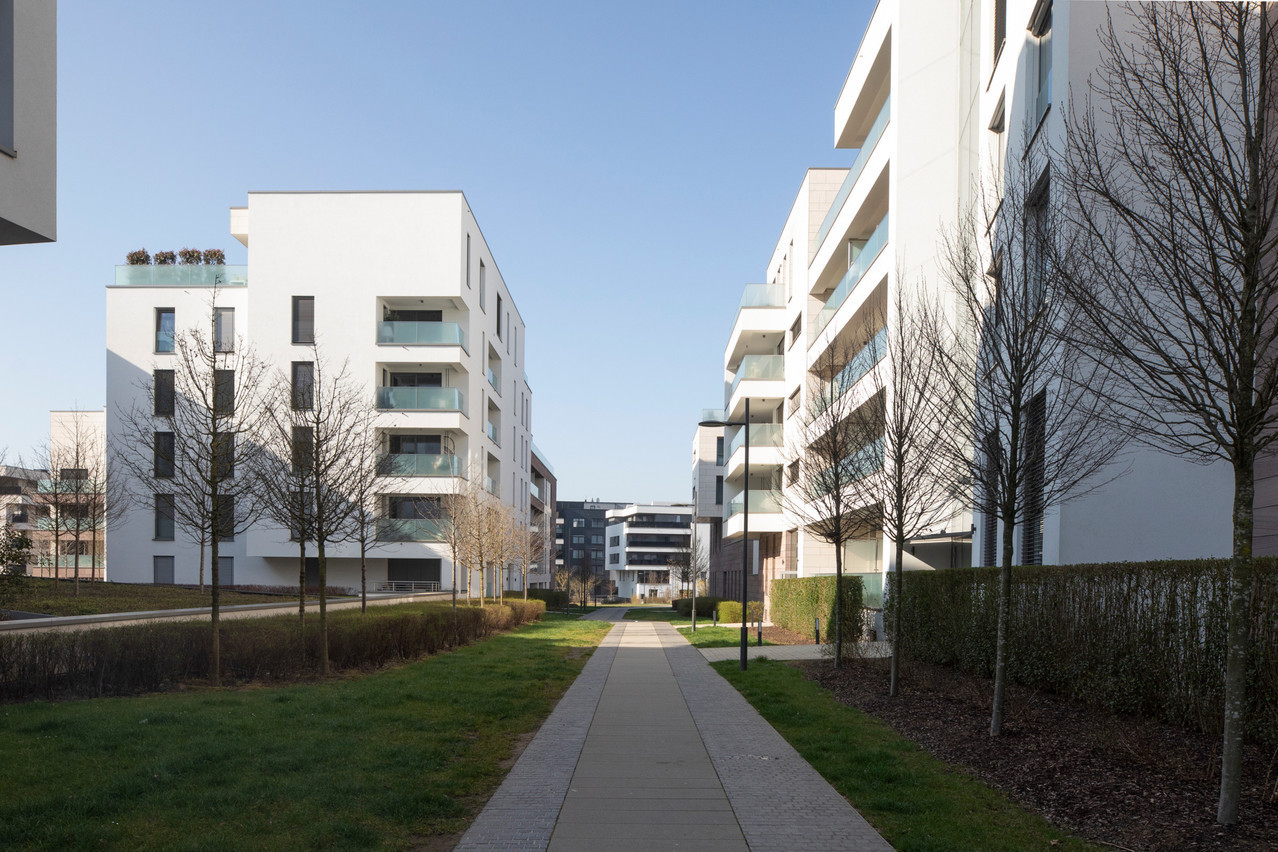“If for a long time, the objective of housing policy in Luxembourg was to allow and accompany the country to become a democracy of owners, which was a good objective, it seems to me that today we have reached a stage, given the current situation, where this objective should be shifted,” explains Idea Foundation economist Michel-Edouard Ruben. Ruben expressed his thoughts on the issue ahead of the so called “Assises du Logement” scheduled for 22 February.
“The objective should be ‘we will manage to increase the number of new homes produced each year’, because it is indeed the stock of housing that must increase. When we look at Statec forecasts, we should manage to build 6,000 to 7,000 dwellings every year, and that should be the objective, there should not be a price objective. Nevertheless, increasing the quantity is no guarantee that prices will become accessible.”
But how would you achieve this? Ruben explains: “I would be in favour of creating an alliance, a signed agreement, in good understanding, between the various private and public partners--why not with companies and institutions? During the pandemic, this type of agreement was possible in other sectors, so why not for housing?” asks the economist. He suggests following the example of “major metropolises,” saying that it shouldn’t necessarily be individuals who buy these houses. “There will be a separation of land and buildings,” and the country should turn more to rentals of territories.
Becoming a builder state
The country, where 70% of owners own their main residence, can be called a democracy of owners. 80% of Luxembourgers are homeowners and 50% of foreign residents are homeowners, which is almost double the rate of homeowners among foreign residents in the average European country (26%). Luxembourg also has 387 dwellings per 1,000 inhabitants compared to 468 dwellings per 1,000 inhabitants in OECD countries.
“For years, the number of households has been increasing more than the number of dwellings built, and therefore the stock of vacant dwellings is being reduced a little more each year and is in fact less important than is sometimes believed. The expected revenues from the vacancy tax prove this. There is therefore an urgent need for Luxembourg to become a builder state.”
On the question of prices...
Ruben’s opinion piece also states that in 2013, interest rates were more or less above 2.5%, and the price per square metre at €4,500. In 2022 these interest rates exceeded 3% by the end of the year and the price per square metre is now around €8,500. To have the same purchasing power as in 2019--when there were already complaints about the difficult access to property, prices would have to fall by 35%, estimates Ruben. “But this is not a good idea because a housing crisis occurs when prices rise and that is terrible; but when prices plunge, it is a real estate crisis, and it is generally even more horrible. On the other hand, Luxembourg needs new housing and residential investment. Prices that fall quarter after quarter are not the best incentive to invest and do not make banks want to lend,” says Ruben.

“As social developers contribute only marginally to the marketing of new housing and do not manage to curb the lengthening of their waiting list, it will eventually be necessary to exchange ‘the’ social housing policy for ‘a’ social housing policy.” Photo: Romain Gamba
The opportunity to support demand and the need to increase supply should no longer be opposed either, reads the document. It is also necessary, according to Ruben, to value the principle that creating housing for all is only possible together, to recognise that high real estate prices are, unfortunately, a corollary of the reality of Luxembourg. The grand duchy is, after all, a small rich country with a high demographic vitality. It is also necessary to stop believing that building more means an automatic decrease in real estate prices and an instantaneous improvement in accessibility to property.
“As social developers contribute only marginally to the marketing of new housing and do not manage to curb the lengthening of their waiting list, it will eventually be necessary to exchange ‘the’ social housing policy for ‘a’ social housing policy that aims to make housing in Luxembourg accessible, including in (expensive) privately owned housing,” the document explains.
To respond to this housing crisis “constantly mentioned in the media and political speeches over the past ten years,” Ruben proposes “measures” rather than solutions.
“In the short term: effective housing demand will have to be increased to meet and serve supply. Some will see this as old recipes with undesirable distributional effects, but the most obvious way of (re)solving demand is through tax-favoured measures (lowering VAT, reducing registration fees, subsidising interest, raising the ceiling on loan deductibility, reintroducing capital gains transfers, etc.).”
Building on the Special Development Support Fund
The economist also mentions the Special Development Support Fund, which mainly finances projects of non-profit developers, “and which could for example increase its acquisitions from private developers.” He also cites “distributing to households the €500m or so in savings that seems to be overflowing from the state coffers [they were mentioned by finance minister Yuriko Backes in late January].” After all, “is it not a worthwhile alternative that these €500m be used for the national affordable housing strategy?”
Michel-Edouard Ruben’s suggestions are available below (in French).
This story was first published in French on . It has been translated and edited for Delano.
